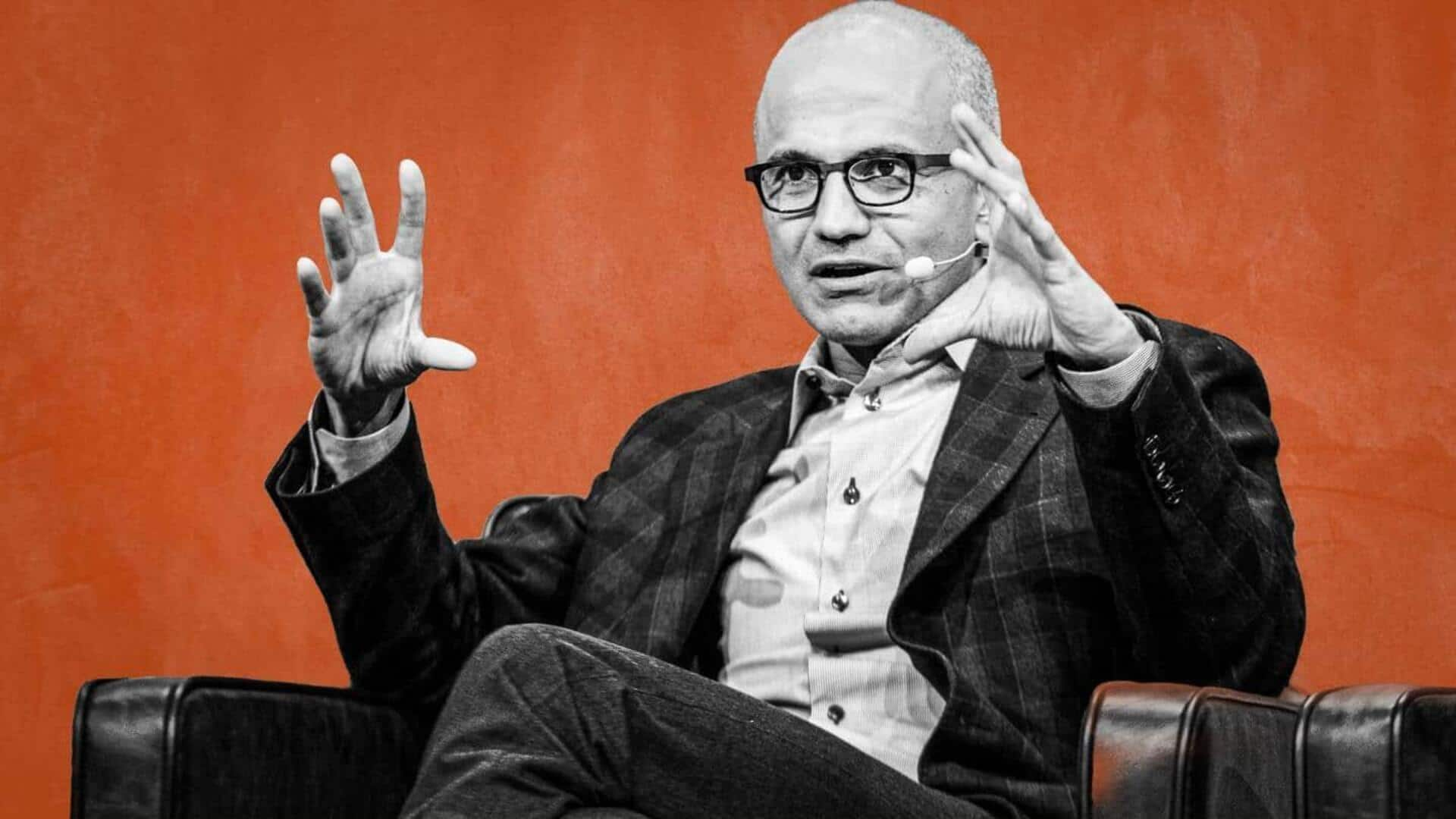
'Haunted by AI,' Nadella says some Microsoft units may fail
What's the story
Microsoft CEO Satya Nadella recently expressed concerns about the tech giant's future in the era of artificial intelligence (AI). During a town hall meeting with employees, he admitted that some of Microsoft's biggest businesses may not survive in the future. "Some of the biggest businesses we've built might not be as relevant going forward," he said.
Industry lessons
Nadella draws parallels with past tech failures
Nadella drew parallels between Microsoft's current situation and past tech companies that have failed to adapt, like Digital Equipment Corporation (DEC). "Our industry is full of case studies of companies that were great once, that just disappeared. I'm haunted by one particular one called DEC," he said. Nadella's first computer was a VAX from DEC, which once dominated the minicomputer market but became irrelevant due to strategic missteps and competition from IBM.
Internal culture
Culture change at Microsoft
Nadella's comments come amid reports of a culture change within Microsoft, with employees describing the company as "markedly different, colder, more rigid." The CEO acknowledged these concerns but didn't provide specific details on how he plans to improve the company's culture. He did say that Microsoft's leadership team "can do better and we will do better," promising improvements in the future.
Future strategy
The importance of 'renewal' and change
Nadella stressed the importance of "renewal" and change in Microsoft's future. He said, "Here we are in our 51st year as a company, and if you look at a set of metrics we are thriving." "But at the same time, when I think about the degree of difficulty that is ahead, for us to navigate what is a changing industry, a changing tech sector, and changing economics, we have some very hard work ahead of us."
Platform shift
Warning about potential margin decline
Nadella also warned Microsoft employees that "some of the margin that we love today might not be there tomorrow." This is an indication of a possible platform shift, one that's already causing major changes within the company. He said during an earnings call earlier this year, "At a time of platform shifts, you want to make sure you lean into even the new design wins, and you just don't keep doing the stuff that you did in the previous generation."